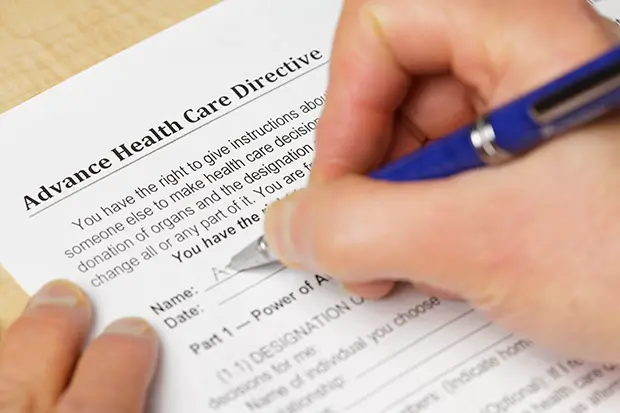
Submitted by The Community Cancer Center
Imagine the unthinkable. You suddenly find yourself in a health crisis where you are unable to speak due to an illness or a tragic accident. Who will speak for you? Does your family know your wishes?
Most of us spend considerable time planning for things like vacations or retirement, but don’t have much of a plan when it comes to our healthcare at the end of life. Advance care planning is just that—a plan. This plan involves conversations with family, friends, and healthcare providers about your healthcare wishes. Without a plan, family members face the burden of trying to second guess your wishes and doctors find themselves compelled to continue treatment. That is why advance care planning is so important.
April 16th is National Healthcare Decisions Day—a time to raise awareness about the importance of advance care plans. All persons 18 years and older are encouraged to complete an advance care plan or review their current plan this month as part of their healthcare and wellness.
Advance care planning includes:
- Deciding what types of treatment you would or would not want should you be diagnosed with a life-limiting illness.
- Identifying personal beliefs, values, and wishes related to future healthcare decisions.
- Selecting a decision-maker (healthcare agent).
- Putting your wishes into writing with an advance directive.
- Distributing your advance directive to your decision-maker, loved ones, and your healthcare team.
What is an advance directive?
An advance directive is a legal document that allows you to make your wishes known in the event that you are unable to communicate. It usually consists of a healthcare power of attorney and a living will.
- Healthcare Power of Attorney. This document allows you to select the person you trust to make healthcare decisions for you and to represent your wishes and goals of care when you become unable to do so.
- Living Will. This document describes your preferences for the type of medical treatment you wish to receive, or not receive, in the event you are no longer able to make the decisions yourself.
How to get started:
- You do not need to see a lawyer to prepare an advance directive. You can get the forms from your medical providers, local hospitals, or online from the Illinois State Medical Society at www.isms.org. For more information, visit the National Healthcare Decisions Day 2016 website at www.nhdd.org.
Photo credit: Ken Brown/iStock

